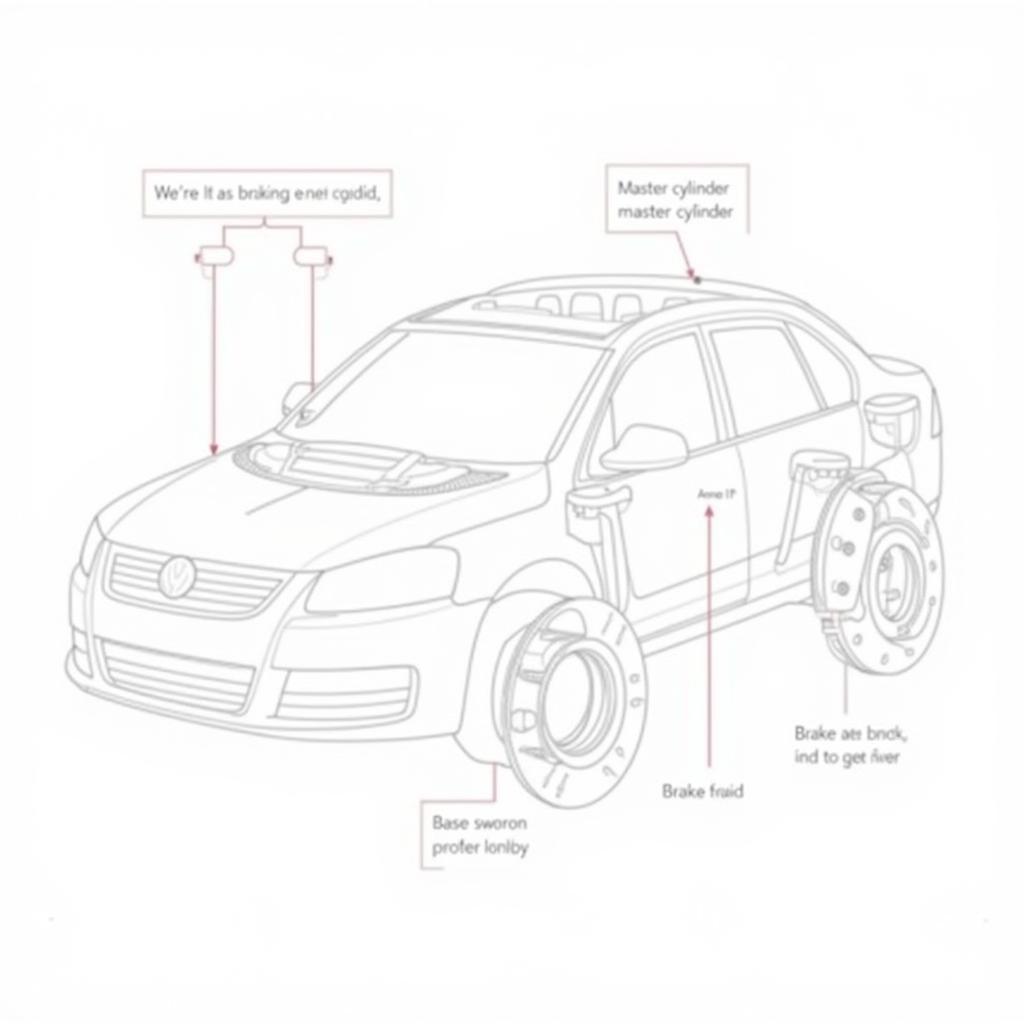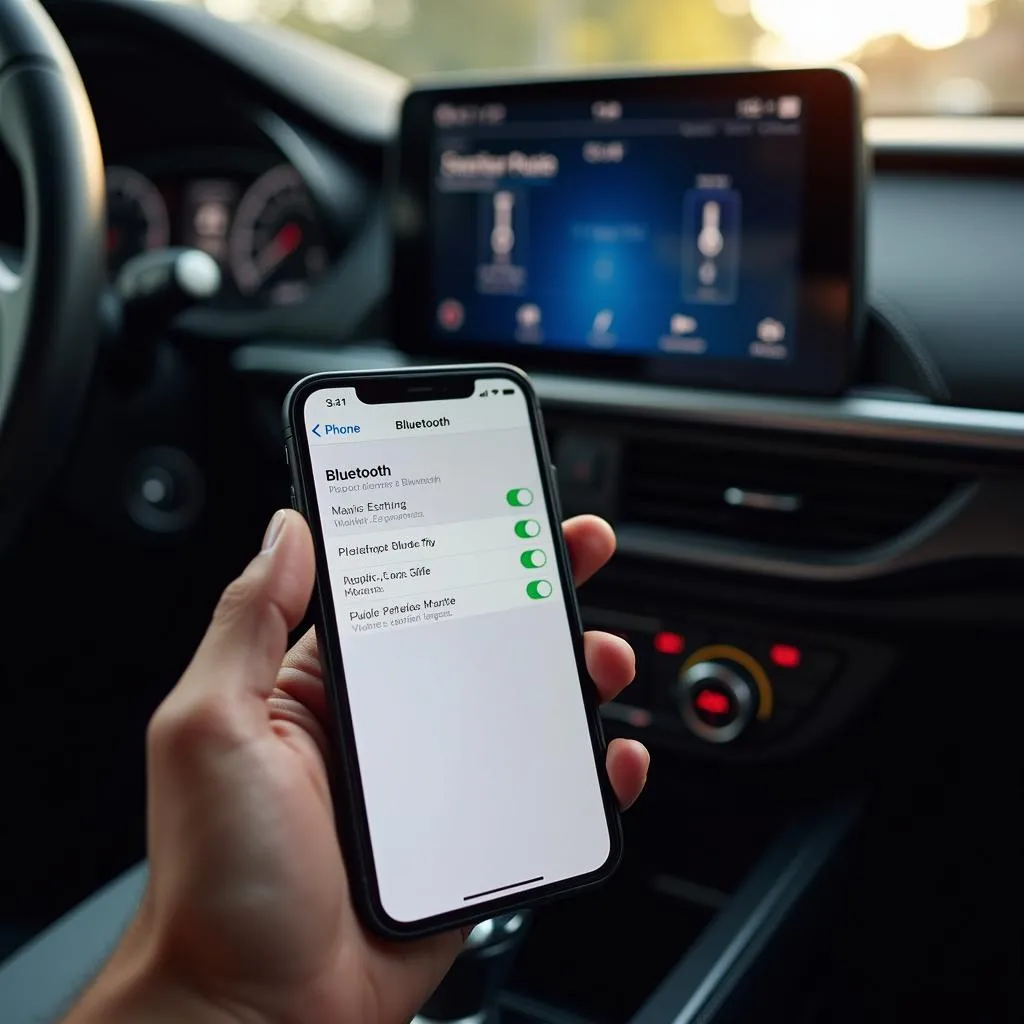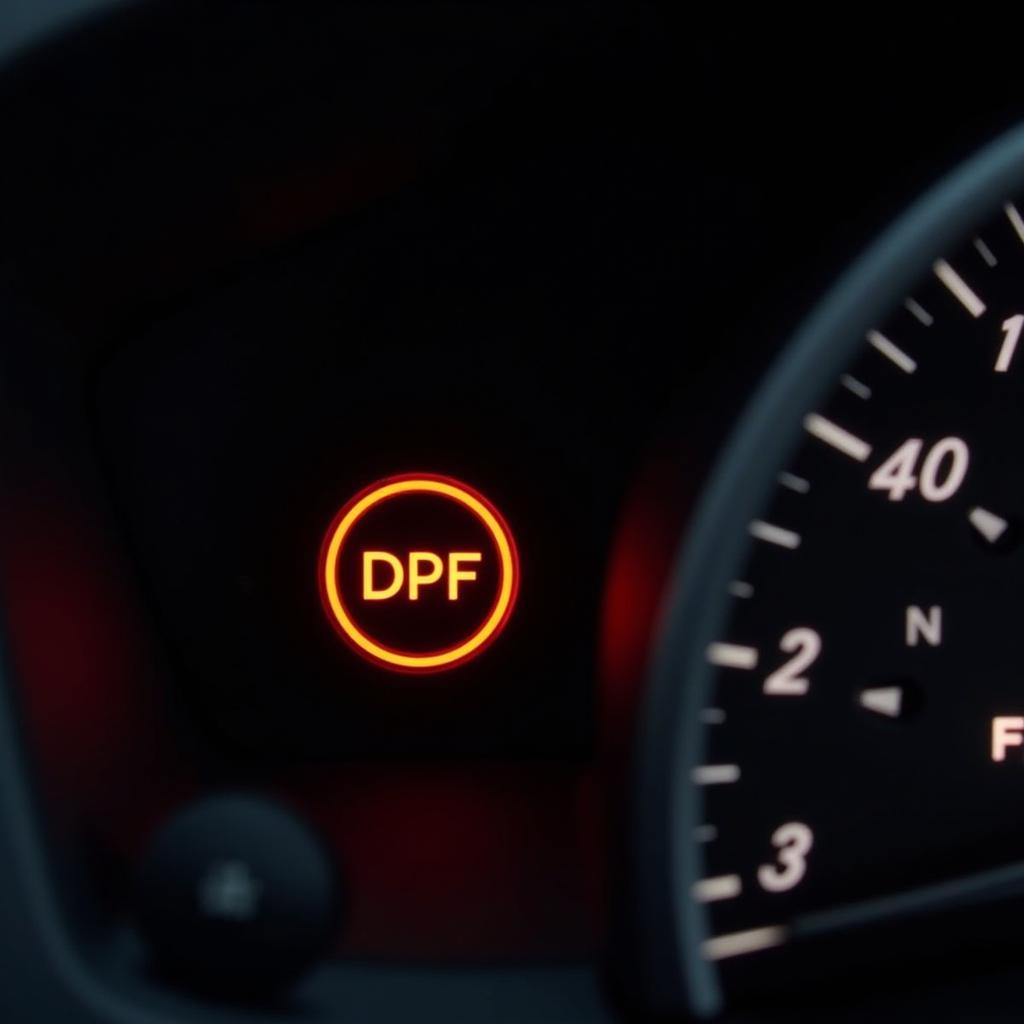The dreaded vw passat brake fluid warning light can be a source of anxiety for any driver. This guide dives deep into the causes, solutions, and preventative measures for addressing this issue, offering you peace of mind and keeping you safely on the road. We’ll explore everything from simple checks to more complex diagnostic procedures, equipping you with the knowledge to tackle this problem head-on.
The brake fluid warning light in your VW Passat is a critical safety indicator. Ignoring it can lead to serious consequences, compromising your braking ability and putting you and others at risk. Understanding why this light illuminates is the first step towards a safe and reliable driving experience. brake fluid warning light vw passat This comprehensive guide will cover various aspects of the brake fluid warning light, from common causes and troubleshooting steps to professional diagnostic and repair options.
Understanding the VW Passat Brake Fluid Warning Light
The brake fluid warning light usually appears as a circled exclamation mark within parentheses, often accompanied by the word “BRAKE.” It signals a potential problem within your Passat’s braking system, primarily related to low brake fluid levels. However, it can also indicate other issues, requiring a more thorough investigation.
Common Causes of the Warning Light
- Low Brake Fluid: The most common culprit is low brake fluid. This can be due to normal wear and tear of the brake pads, a leak in the brake system, or a faulty brake fluid level sensor.
- Worn Brake Pads: As your brake pads wear down, the brake calipers need to extend further to apply pressure to the rotors. This requires more brake fluid, leading to a drop in the reservoir level.
- Brake Fluid Leaks: Leaks in the brake lines, hoses, calipers, or wheel cylinders can cause a significant loss of brake fluid, triggering the warning light.
- Faulty Brake Fluid Level Sensor: A malfunctioning sensor can provide inaccurate readings, illuminating the warning light even when the brake fluid level is adequate.
Troubleshooting the Warning Light
- Check the Brake Fluid Level: Park your car on a level surface and locate the brake fluid reservoir. Check the fluid level against the minimum and maximum markings. If it’s low, add the correct type of brake fluid specified in your owner’s manual.
- Inspect for Leaks: Carefully examine the brake lines, hoses, calipers, and wheel cylinders for any signs of leakage. Look for wet spots, drips, or stains.
- Check Brake Pad Wear: Inspect the brake pads through the wheel spokes. If they appear thin or worn, they may need replacement.
vw passat b6 brake fluid warning light The warning light persists even after topping off the fluid, it’s essential to consult a qualified mechanic to diagnose and address the underlying issue.
Professional Diagnosis and Repair
If the simple checks mentioned above don’t resolve the issue, it’s time to seek professional help. A qualified mechanic can perform a more comprehensive diagnosis using specialized tools and equipment.
Diagnostic Procedures
- Pressure Testing: This test helps identify leaks in the brake system by pressurizing the lines and checking for pressure drops.
- Visual Inspection: A thorough visual inspection of the entire braking system can reveal hidden leaks, damaged components, or other potential problems.
- Electronic Diagnostic Scanning: Scanning the vehicle’s electronic control unit (ECU) can pinpoint specific faults within the braking system, including sensor malfunctions.
 VW Passat Brake System Diagram
VW Passat Brake System Diagram
“A thorough diagnosis is crucial when dealing with brake issues,” says John Miller, a seasoned automotive technician with over 20 years of experience. “Ignoring a persistent brake fluid warning light can lead to costly repairs and compromise safety.”
Remote Diagnostic and Programming Services
In some cases, remote diagnostic and programming services can offer a convenient and efficient solution. These services utilize specialized software to access and analyze your vehicle’s data remotely, allowing technicians to identify potential problems and even perform software updates without physical access to the car. This can save you time and money, especially for software-related issues.
Preventing Future Issues
- Regular Brake Fluid Checks: Make it a habit to check your brake fluid level regularly, preferably every month or as recommended in your owner’s manual.
- Timely Brake Pad Replacements: Replace your brake pads before they wear down completely to prevent excessive strain on the braking system and maintain optimal brake fluid levels.
- Routine Brake System Inspections: Schedule regular brake system inspections by a qualified mechanic to detect and address potential issues early on.
2002 passat brake warning light Preventative maintenance is key to a safe and reliable braking system. By following these tips, you can minimize the risk of encountering the dreaded brake fluid warning light in the future.
“Preventive maintenance is the best way to avoid brake problems,” adds Miller. “Regular checks and timely replacements can save you headaches and ensure your safety on the road.”
Conclusion
The vw passat brake fluid warning light should never be ignored. By understanding its potential causes and taking appropriate action, you can ensure a safe and reliable driving experience. From simple checks to professional diagnostics and remote services, there are various solutions available to address this issue. Prioritizing preventative maintenance can further minimize the risk of future problems, keeping you confidently on the road. Don’t hesitate to consult a qualified mechanic if you encounter any persistent issues with your Passat’s brake system. check brake warning light Your safety and the safety of others on the road depend on it.
FAQ
- What does the VW Passat brake fluid warning light look like? It typically appears as a circled exclamation mark within parentheses, often with the word “BRAKE.”
- Can I drive with the brake fluid warning light on? It’s highly discouraged. Continuing to drive can compromise your braking ability, leading to dangerous situations.
- How often should I check my brake fluid level? Check it monthly or as recommended in your owner’s manual.
- What type of brake fluid should I use in my VW Passat? Consult your owner’s manual for the correct brake fluid specification.
- What if the warning light stays on after adding brake fluid? Seek professional diagnosis from a qualified mechanic.
- Can remote diagnostics fix brake fluid warning light issues? Yes, in some cases, especially for software-related problems.
- How can I prevent future brake fluid warning light issues? Regular checks, timely replacements, and routine brake system inspections are key to prevention.



